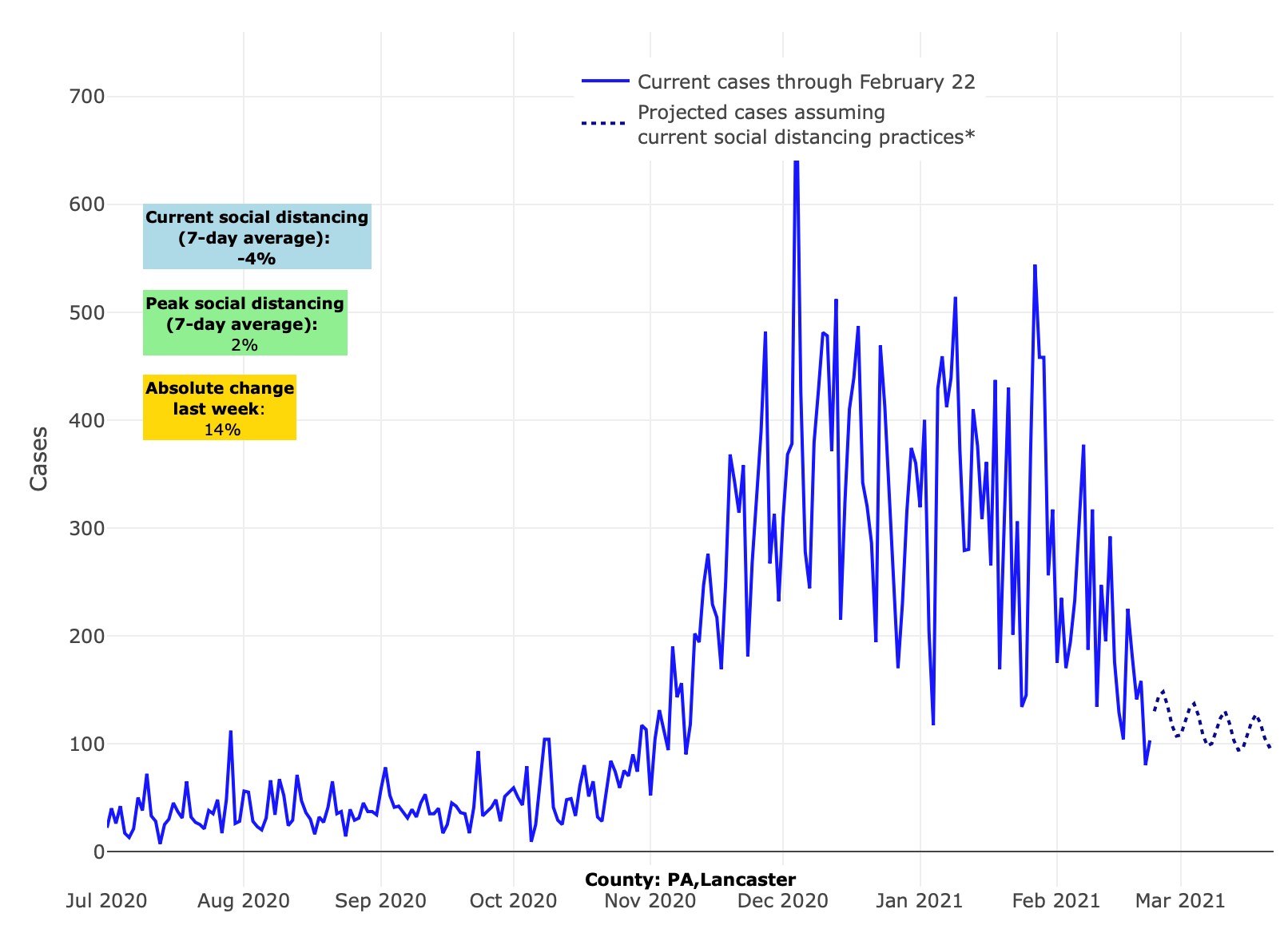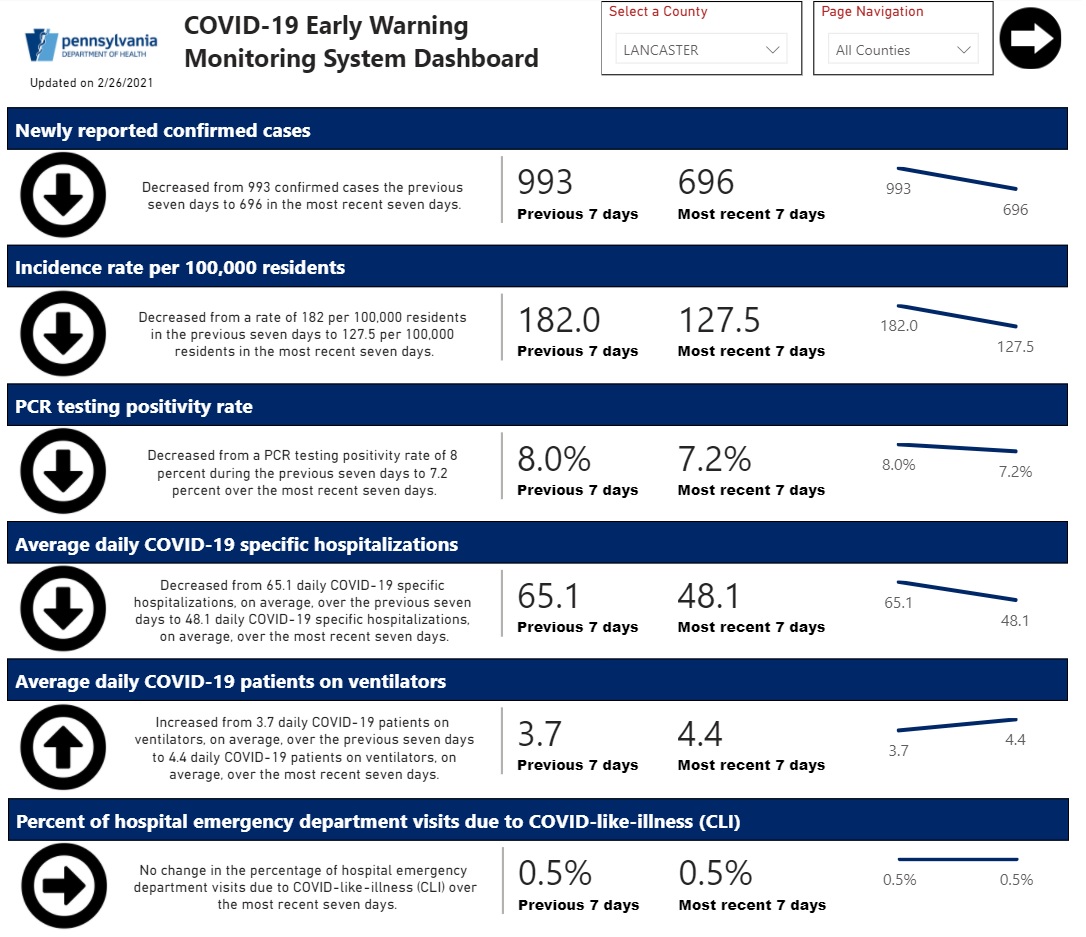
The prospects for a gradual return to normal after a year of the Covid-19 pandemic are brighter than people may realize, the team at PolicyLab asserts in its most recent blog post.
PolicyLab, based at the Children's Hospital of Philadelphia, follows Covid-19 data and predicts trends in more than 800 counties nationwide. All 800 have seen dramatic declines, PolicyLab said.
"The incidence of new cases is down more than 75% since early January and continues to plummet," the organization wrote this week, adding: "[T]he observed data have been unequivocally demonstrating ... that the burden of the pandemic is decreasing."
Mitigation measures — masking, washing hands and social distancing — remain essential, along with continuing to increase the pace of vaccination, the organization said.
Yet fears that a fresh resurgence is imminent, perhaps driven by new variants of the coronavirus, are not borne out by the data, PolicyLab maintains.
Speculative stories that stoke fear are counterproductive, it said. Instead, "We need to consider how to move forward in the coming months so that we do not further our suffering from more delays in diagnosing other health conditions and continued social isolation that has prevented children from seeing their friends in school or grandparents from seeing their grandchildren."
In Lancaster County, weekly case rates continued their decline, from 182.0 per 100,000 population last week to 127.5 per 100,000 over the past seven days, according to Pennsylvania's Early Warning Monitoring System Dashboard, updated today. The county's Covid-19 inpatient census averaged 48.1, down from 65.1 the previous week, although the number on ventilators is up slightly.
Those numbers contrast with case rates that exceeded 450 per 100,000 earlier this winter, and hospital Covid-19 inpatient counts that were above 160.

The Atlantic magazine cites four possible factors at work in the coronavirus' broad decline of recent weeks: Improved mitigation behavior by the public; seasonal change; partial community immunity due to recovered patients; and the vaccines.
It, too, reaches an optimistic conclusion: The danger from new variants is unlikely to be sharply higher, it says, and the beginning of the end is near of Covid-19 "as an exponential, existential and mortal threat."





